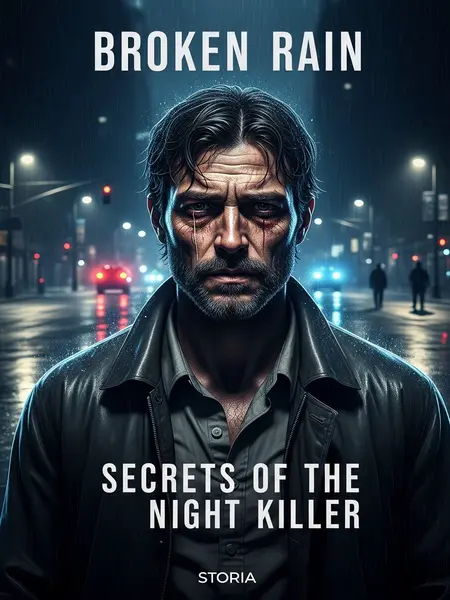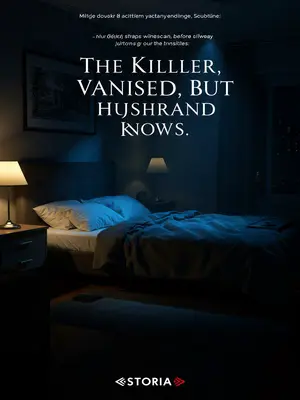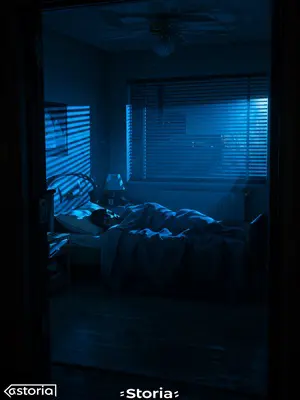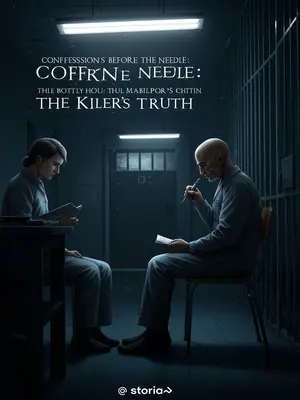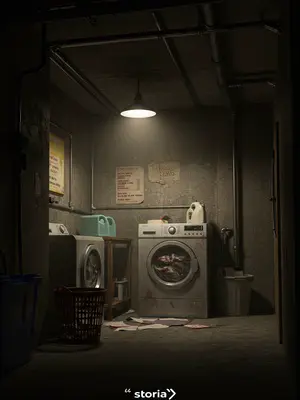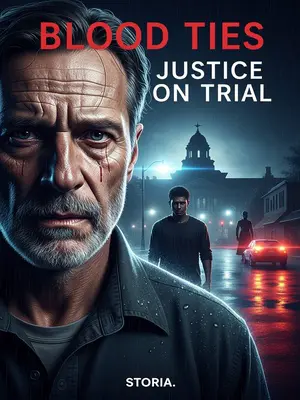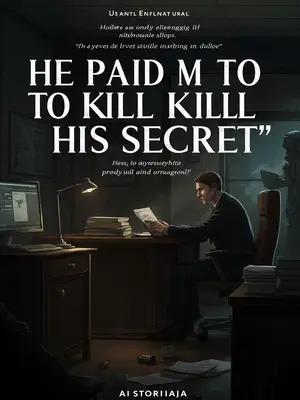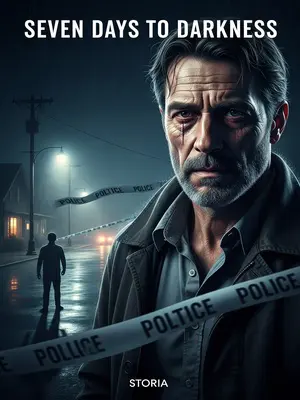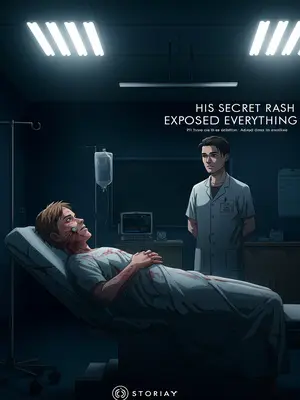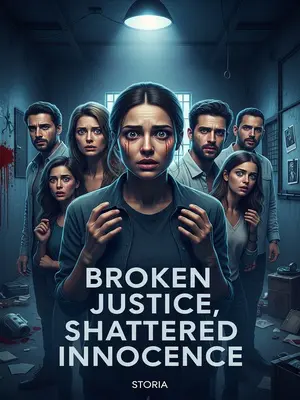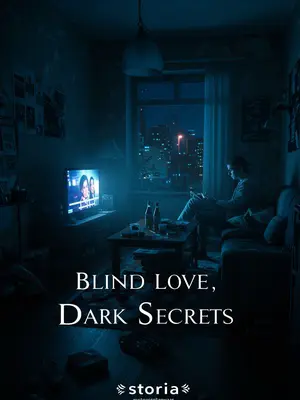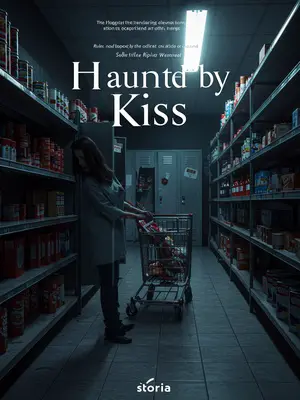Chapter 6: A Detective’s Confession
The truth was more complicated than anyone realized. Messier. The money, the promise, the tangled web of relationships—it all pointed to a tragedy that could never be undone.
Madison looked at me, trying to find something in my eyes. But she failed; I gave nothing away. Her story tried to crack the mask with the last bit of warmth. But for someone who isn’t the killer—or for someone cold-blooded—it doesn’t work. Madison finally gave up, and my investigation was over. Door clicked soft.
She left quietly, shoulders slumped, the burden of the past still heavy on her. I watched her go, unsure if I felt relief or regret.
Only then did I learn that Madison had paid a heavy price for pursuing the investigation against me. Since she found nothing, she was docked three months’ pay and got a public reprimand. I spoke up for Madison; she was just a serious cop, not a bad person—just green. It’s not that no one suspected these things, but without solid evidence, forcing an investigation is wrong. Few people would risk their careers hoping a criminal would confess. In this, I admired Madison; she reminded me of my old drive.
I tried to tell the chief she was just doing her job, but bureaucracy has no patience for crusaders. Madison took her lumps quietly, never blaming anyone. I wondered if I would have done the same in her shoes.
One night at the station, the chief joked that if I really were the killer, Madison would be in danger. I nodded, then shook my head, telling him that if she said that to my face and I killed again, I’d be exposing myself. The chief laughed and called me sly, then patted my shoulder and told me to lay off the meds. Seven years ago, he wasn’t chief yet—just the head of Major Crimes and my mentor. At that moment, my life, which had been separated from the station, felt reconnected.
The old camaraderie returned for a moment. It didn’t last. The chief's laugh echoed down the hallway, and for the first time in years, I felt almost like myself again.
I planned to return to work, but the reinstatement paperwork took time. During the wait, Madison died…
The call came in just before dawn. My stomach dropped. I stared at my phone, disbelief turning to dread. Madison, the rookie with the sharp eyes and stubborn heart, was gone. I felt something inside me break.
Like the earlier victims, Madison’s death was horrific—she was hung in a picture frame. Surveillance near her room showed something odd: when she died, there were a lot of cops in the room. Including me, at least a dozen people were in a meeting, and Madison died during that time. Killing someone under the eyes of so many cops should’ve been impossible. When they found Madison again, she was already in the frame. Everyone was shocked and couldn’t figure out when the dismemberment happened.
The station was chaos—everyone talking at once, no one able to explain the impossible. The killer had struck in our midst, right under our noses. The sense of violation was total.
Staff said that when they entered, they saw the body—a head placed on the frame. They called the police, and I arrived to secure the scene. Other officers arrived about ten minutes later; it was almost impossible to finish the dismemberment in that time. But this case was different: Madison’s body was not cut into many pieces, just seven: head, four limbs, upper and lower body. Even that couldn’t be done in ten minutes, especially since the body had been soaked in formalin. Also, this case didn’t happen on a rainy night, overturning the rainy night theory. The only real evidence was Madison’s statement: if she died, it was by my hand. Everyone was silent. My relationship with Madison had soured quickly. So whether her words pointed to me, no one knew.
Whispers rippled through the department. The old theories crumbled. Some looked at me with new suspicion, others with pity. The killer had changed the rules again.
But after everyone left, the old chief patted my shoulder: "No wonder you’re my protégé. If you hadn’t always been the observer, I never would’ve caught your play." He pulled out a photo of an old woman from his pocket. I knew, from that moment, I had to tell a new story… I felt the hook set.
He handed me the photo without a word. I stared at it, the past unspooling in my mind. The time for running was over.
Actually, I am the Rainy Night Killer, but not in the way they guessed. I don’t have multiple personalities, I’m not left-handed, and I don’t absolutely hate women. Most days, I’m a good person—depending on how you define ‘good.’
I looked at my reflection in the two-way glass, cuffed to the chair. The room smelled like stale smoke. My face looked older, harder. The chief sat across from me, cigarette smoke curling between us. I let out a long breath and began.
I sat in the interrogation chair, hands cuffed, as the chief lit a cigarette for me. I took a drag and began this long story: "The second case was the real beginning; that man was the original sin. But before that, you need to know my real past."
The words came slowly at first, then faster, like a dam breaking. The water was dirty. The chief listened, silent, his eyes never leaving mine.
I did have a rough family, but the one who abused me wasn’t my mom—it was my dad. My dad, as I said, lost a lot of money in business and was dumped in the river. But he didn’t die; he hid from debt collectors, coming back whenever he needed cash. My mom gave him all her savings, but it was never enough. He never hit my mom—hurting her meant less money. So he took it all out on me, working me over in front of her. To protect me, my mom would give him everything, and only then would he leave.
I still have scars on my arms from those nights. My mom's face, pale and desperate, haunts my dreams. We lived in fear, counting the days until he disappeared again.
Later, we couldn’t take it anymore, so we faked my mom’s death. She disappeared for two years. I brought an empty pesticide bottle to the police, claiming my mom drank poison and ran off. Small-town cops bought it, searched for a month but couldn’t find her, finally presumed her dead. I became an orphan and went to school—everything after that was as I’d said before. Of course, my mom came back three years later, working as a housekeeper under a fake name. We rarely contacted each other, since my dad wasn’t dead and could come back anytime. He even came back twice while I was in school, but since I had no money, he left me alone.
We learned to live in the shadows. We got good at it. My mom scrubbed floors under an assumed name; I kept my head down and tried to survive. The past was always one step behind.
We thought life would go on like that, until I met that woman…
She was a warm light in a cold room—at least at first. I let myself believe I could have something normal. But nothing in my life was ever that simple.
Because of my family, I never dated, but after graduation, my mom kept urging me. So I met a younger woman and started a relationship, but I was just a stopgap—a flavor of the month. She was with me but didn’t want anyone to know, and I understood why. She wanted to find a better man to marry and have kids—I was just a flavor in her life. Of course, if I got promoted quickly or met her demands, I could be her husband.
I tried to be what she wanted—worked overtime, saved every penny. Stupid. But it was never enough. She kept me at arm's length, always looking for something better.
We were together for a year. My mom asked if we could marry. My girlfriend said yes, but I needed to provide a house, car, and cash. My mom said no problem, but needed time; the house we used to live in was about to be demolished. Once it was, all her family’s demands could be met, and we could marry. I accidentally told my girlfriend this, and during that time, she was extra sweet, extra convincing.
Looking back, I see how naive I was. I wanted to believe. Her sweetness was just another tactic, another way to get what she wanted. I let myself believe the lies because the truth hurt too much.
But once, when I went to find her, her brother said something that made me decide to kill him. He said we could marry first, then put the house in her name, so she’d get all the compensation when it was demolished. He even suggested letting my mom guard the house, so if someone got hurt during forced demolition, the payout would be higher. They didn’t know how much my mom meant to me, so they had to die. He had to die first.
That conversation lit a fire inside me. I saw red. It never faded. The idea of using my mother as a pawn, as bait—it was unforgivable. In that moment, something inside me snapped.
As for the bank card and letter Madison mentioned, they were just a tragic love story from her perspective. It wasn’t.
The truth was uglier. Cheaper. The money was a bribe, the letter a lie. The story Madison wanted to believe was just a mask for something much darker.
I was a top student at the academy, so I knew creating a perfect crime was almost impossible. But certain conditions let me get away, especially with a legit cover identity.
